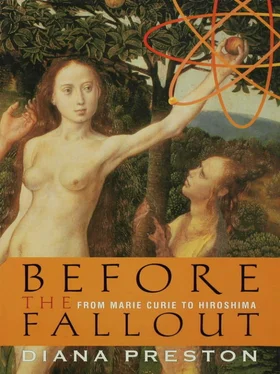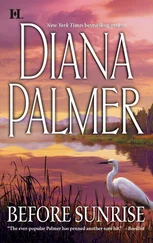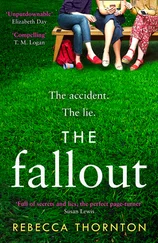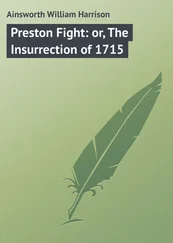The immediate response in the rest of the world’s press was not so unanimous as that in Britain and the United States. On 7 August the Vatican’s newspaper, Il Osservatore Romana, condemned the dropping of the bomb and juxtaposed its use with Leonardo da Vinci’s reputed withdrawal of his invention of the submarine for fear of its misuse. The Swedish Aftenblader on 9 August reflected: “Although Germany began bomb warfare against open towns and civilian populations, all records in this field have been beaten by the Anglo-Saxons. The so-called rules of warfare… must brand the bombing of Hiroshima as a first-class war crime. It is all very well if atom raids can shorten the war but this experiment with the population of an entire city as guinea pigs reflects no martial glory on the authors.” In France Le Figaro remarked that it was “not probable that the Anglo-Saxons will long remain the sole possessors of this thunderbolt” and looked forward to French participation in nuclear projects.
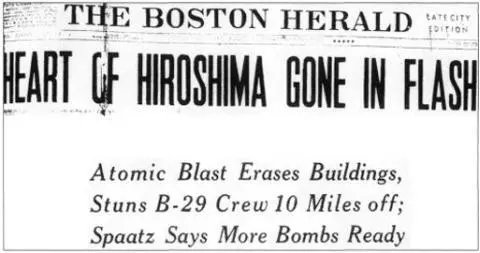
Newspaper headline announcing the dropping of the first atomic bomb on Hiroshima
Among Allied troops, including those preparing to move from the now quiet European front to take part in the invasion of Japan, there was only relief. On Okinawa American forces fired so many weapons into the air in joy that shell splinters falling back to the ground killed seven men. A British doctor wrote of the atomic bombings: “We were packing for the invasion of Penang Island. None of us wept for the victims. Perhaps we were wrong but on the night the war ended I don’t think any of us gave a damn. Reprieve is sweet. I was home six months later.” American soldiers thought similarly. A twenty-one-year-old second lieutenant wrote: “When the bombs dropped and the news began to circulate that [the invasion of Japan] would not, after all, take place, that we would not be obliged to run up the beaches near Tokyo assault-firing while being mortared and shelled, for all the fake manliness of our facades we cried with relief and joy. We were going to live. We were going to grow up to adulthood after all.”
Klaus Fuchs was not able to get the details of the Trinity test to his contact until September. Therefore, despite his previous fore warnings, the explosion of the bomb and its massive power were still a surprise to the Russian leadership. The London Sunday Times’s experienced Moscow correspondent wrote that the news had had an “acutely depressing effect”; “it was clearly realised… that this was a new fact in the world’s power politics, that the bomb constituted a threat to Russia and some Russian pessimists I talked to that day dismally remarked that Russia’s desperately hard victory over Germany was now ‘as good as wasted.’” Stalin told Kurchatov, “Hiroshima has shaken the whole world. The balance has been destroyed.” Another of those working on the Russian bomb project, the physicist and future human rights activist Andrei Sakharov, wrote that when he saw the newspaper headline, “I was so stunned that my legs practically gave way…. Something new and awesome had entered our lives, a product of the greatest of the sciences, of the discipline I revered.”
Stalin redoubled efforts on the Soviet Union’s own weapons program, telling Kurchatov, “If a child doesn’t cry the mother doesn’t know what he needs. Ask for whatever you like. You won’t be refused.” The initial Soviet test would closely resemble Trinity, and the main Soviet separation plant near Sverdlovsk would be configured almost identically to the plant at Oak Ridge. Bolstered by further information from Fuchs, the Russians would test their first nuclear weapon on 29 August 1949, beating the British to become the world’s second nuclear power.
The news of Hiroshima reached the German scientists rounded up by the Alsos mission and interned at Farm Hall in the late afternoon of 6 August. Farm Hall was a pleasant country house surrounded by gardens with a tennis court, a good library, and a piano. Each scientist had a German POW as his orderly. When they had first arrived in July, Kurt Diebner had asked Werner Heisenberg, “I wonder whether there are microphones installed here?” Heisenberg laughed and replied, “Microphones installed? Oh no, they’re not as cute as all that. I don’t think they know the real Gestapo methods; they’re a bit old fashioned in that respect.” He was entirely wrong. Microphones had been installed in every common room and bedroom when the house was used to train agents so that the British spymasters could check on their morale and loyalty. Thus the officer in charge, Major T. H. Rittner, and his staff were able to listen to all the German scientists’ discussions, the content of which confirmed that they did not suspect they were being recorded. He had translated transcripts made of the more interesting points and transmitted them to his own superiors. Other copies went to the U.S. Embassy, whence they reached General Groves.
In his report for 6 August, Major Rittner recounted how Otto Hahn was the first at Farm Hall to be told of the bomb. “Hahn was completely shattered by the news and said he felt personally responsible for the death of hundreds of thousands of people, as it was his original discovery which had made the bomb possible. He told me that he had originally contemplated suicide when he realised the terrible potentialities of his discovery and he felt that now these had been realized and he was to blame. With the help of considerable alcoholic stimulant, he was calmed down and we went down to dinner where he announced the news to the assembled guests…. The announcement was greeted with incredulity.”
In a BBC interview Otto Hahn would recall the events of that evening slightly differently. Major Rittner “told me about the dropping of the bomb and I of course was frightened, or should I say very sad about it and depressed and I told the man ‘Couldn’t you have not done it another way?’ [sic] Then the major answered me, ‘well I don’t care about 100,000 or 150,000 Japs if we can save a couple of our British and American people therefore we dropped the bomb.’ The man was very satisfied about it.”
Major Rittner was certainly right about the scientists’ incredulity and conceit that anybody else could have done something that they had not achieved. Werner Heisenberg insisted that it was a bluff; “it’s got nothing to do with atoms.” Carl-Friedrich von Weizsacker said, “I don’t believe it has anything to do with uranium.” Otto Hahn, perhaps braced by the alcoholic stimulant provided by Major Rittner, responded, “If the Americans have a uranium bomb then you are all second-raters. Poor old Heisenberg… you might as well pack up.” A little later, another exchange took place among the three:
WEIZSACKER: I think it is dreadful of the Americans to have done it. I think it is madness on their part.
HEISENBERG: One can’t say that. One could equally well say ‘That’s the quickest way of ending the war!’
HAHN: That’s what consoles me.
At 9 p.m. they listened to the official announcement of the bombing on the BBC and appeared to be convinced of its authenticity. There was some squabbling as to why their own program had failed. One of the junior scientists praised the cooperation between the American scientists and contrasted this with the disharmony within their own program wherein “each one said the other was unimportant.” Erich Bagge wrote in his diary that day that one reason for the failure was that some of the scientific leaders had looked down on isotope separation “and only tolerated [work on] it at the margins.” Von Weizsacker rationalized their failure another way: “I believe the reason we didn’t do it was because all the physicists didn’t want to do it, on principle. If we had all wanted Germany to win the war we would have succeeded.” Otto Hahn replied, “I don’t believe that but I am thankful we didn’t succeed.” Heisenberg took up von Weizsacker’s theme: “At the bottom of my heart I was really glad that it [the object of their research] was to be an engine [reactor] and not a bomb.” Hahn said, “I thank God on my bended knees that we did not make the uranium bomb”—which he called “an inhuman weapon.” He later said that he would have “sabotaged the [German] war [effort] if I had been in a position to do so.”
Читать дальше
